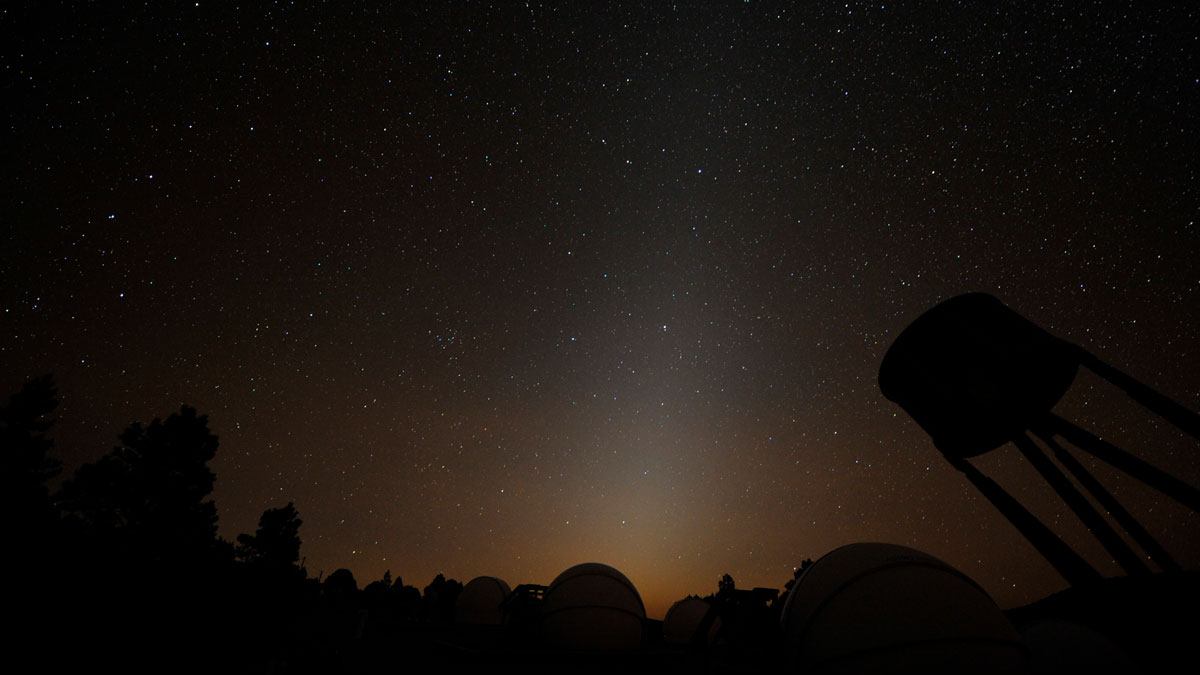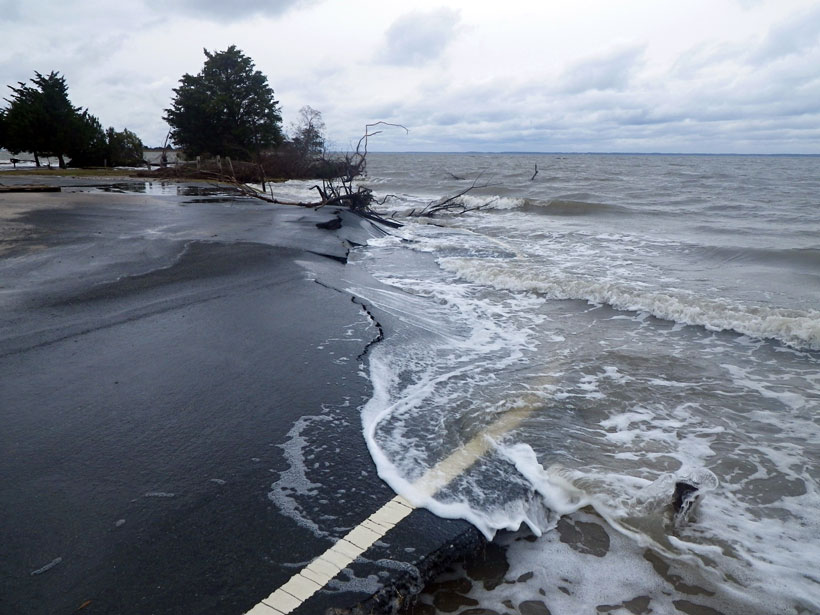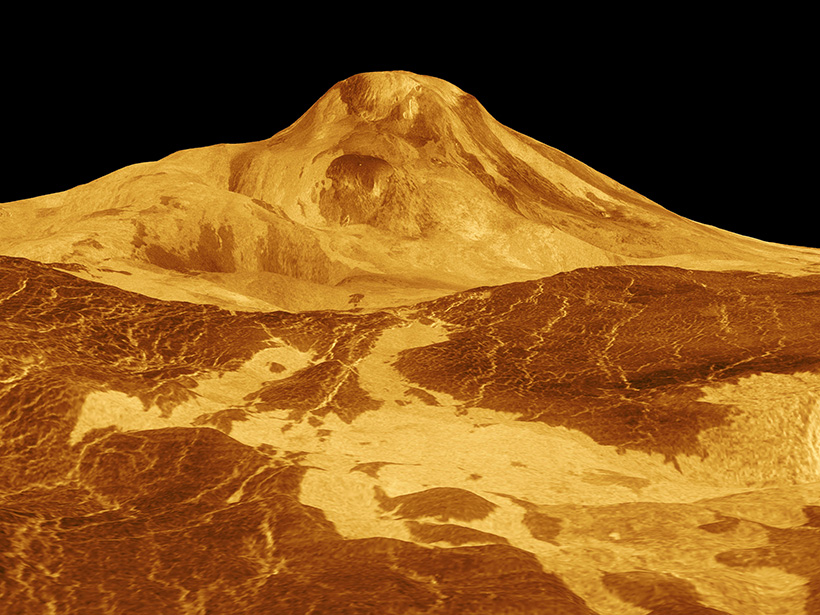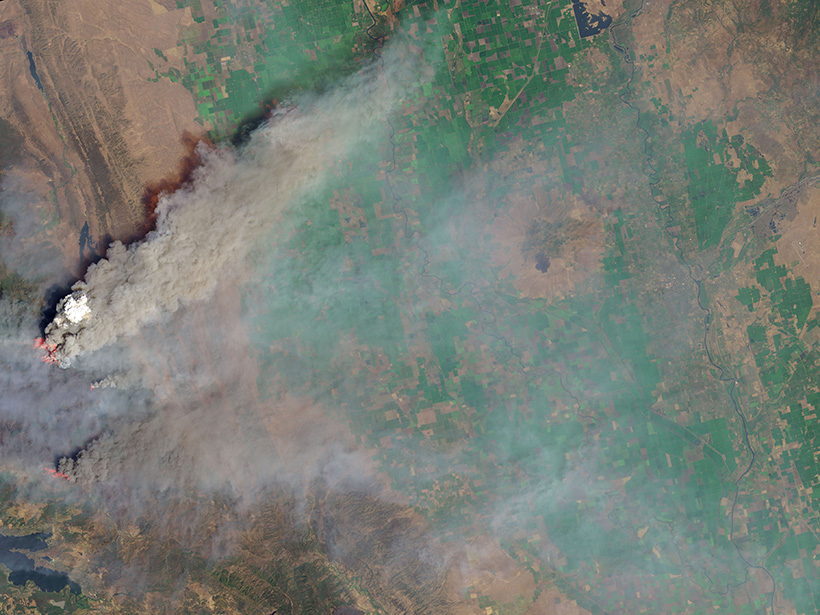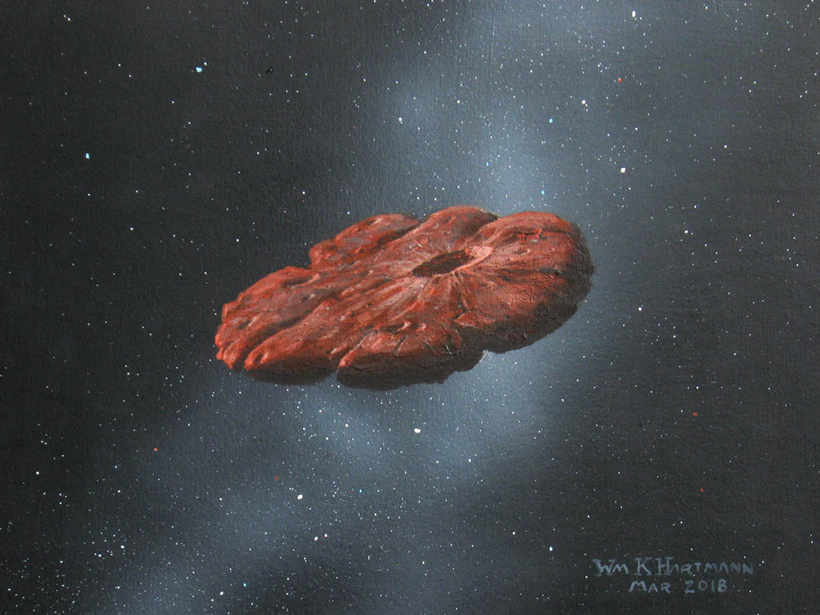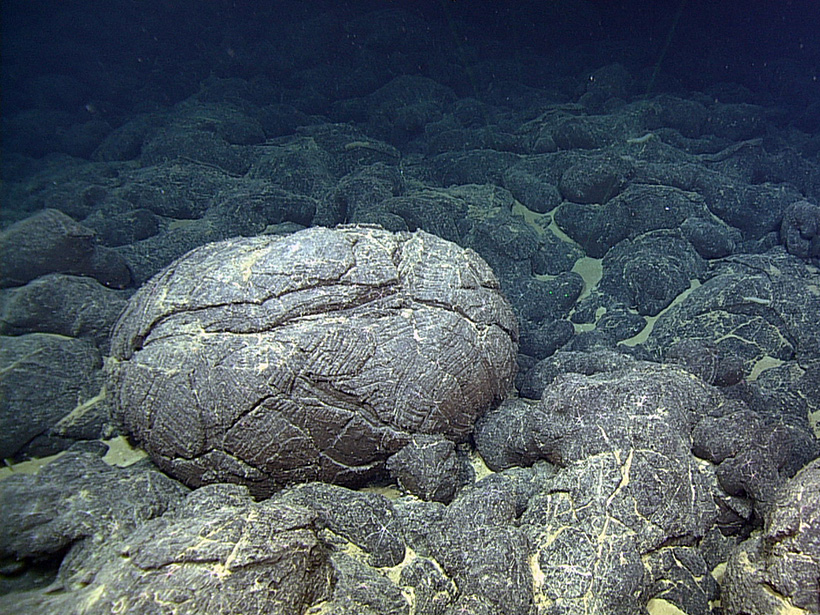When tiny particles enter Earth’s atmosphere, a newly described series of chemical reactions may lead to production of phosphorus-containing molecules that are essential for biological processes.
Sarah Stanley
Sarah Stanley, a freelance writer for Eos, has a background in environmental microbiology but covers a wide range of science stories for a variety of audiences. She has also written for PLOS, the University of Washington, Kaiser Permanente, Stanford Medicine, Gladstone Institutes, and Cancer Commons, a nonprofit that works with cancer patients.
A Step Toward Making GPS More Resilient to Space Weather
Researchers have developed a new mathematical model to more accurately capture how irregularities in Earth’s atmosphere interrupt signals from Global Navigation Satellite Systems.
Long-Term Sea Level Cycle Affects Predictions of Future Rise
New research confirms the existence of a regular, long-term fluctuation in sea level, perhaps caused by processes in Earth’s core.
Is Venus Volcanically Active? New Approach Could Provide an Answer
A strategy that combines geologic mapping with data on how the planet’s surface emits and absorbs microwave radiation could potentially identify recent lava flows.
Satellite Sensor EPIC Detects Aerosols in Earth’s Atmosphere
Aerosol observations from EPIC—a sensor aboard a satellite—align well with ground- and aircraft-based data, including measurements of smoke plumes produced by recent megafires.
Half of U.S. Tidal Marsh Areas Vulnerable to Rising Seas
Adaptation appears possible in some areas, with northerly marshes having a greater capacity to form new soil and gain elevation, whereas some southerly marshes can migrate inland.
Hydrothermal Vents May Add Ancient Carbon to Ocean Waters
Data from a long-distance research cruise provide new insights into carbon cycling in the eastern Pacific and Southern Oceans.
Magma Pockets Lie Stacked Beneath Juan de Fuca Ridge
Analysis of new imaging data suggests that vertically stacked magma chambers are short-lived and contribute to eruptions.

